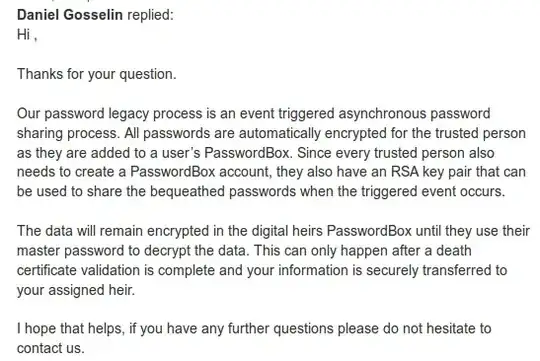Notice the phrase "This master password is NOT stored on our servers, so your secure data can't be retrieved by anyone but you." Actually, one does not necessarily mean the other, depending on the details.
Consider the following system: A symmetric key is generated on the client software by hashing your master password, hopefully with something reasonably strong like a sufficient number of PBKDF2 rounds. This key will be used to symmetrically encrypt your data, using something like AES-128 or AES-256 depending on how long a key they can generate from your password. That key is then encrypted asymmetrically (RSA, ECC) using a public key provided to your client by the storage service, and transmitted to them along with your encrypted data. The private key of that pair is physically secured in an HSM locked in a vault behind reinforced concrete, layers of authenticated access control and process rules to ensure no single person can ever get to it alone.
To decrypt your data normally, your master password must be re-hashed in the client software to obtain the symmetric key. If your password is not available because you've taken it to the grave, your next of kin must present your death certificate to the company representatives, who then retrieve a data dump of your account information and stored data from their servers to something portable. They take that into a secured room with access to the HSM vault, pull out the HSM, plug it into the computer, and run your encrypted symmetric key through it, then use the asymmetrically-decrypted key to symmetrically decrypt your data and give it to your family.
Your master password, therefore, is never stored on their servers, true to their word. Similarly, the key needed to decrypt yours is also technically not stored on their servers; it's kept offline to ensure that physical access to the device is required. So, normally, you are the only person who can get to your data. But, in the event of your death, through an audited process, your family can have the storage company retrieve your data.
EDIT FROM COMMENTS: This is just one possibility, and as the comments infer, may be assuming more about the company's actual internal processes than actually exist. The OP asked about the possibility of a system that could have client-side encryption while allowing server-side data recovery and still protecting the user's secret password. This is one such possibility, and I neither assert nor deny that PasswordBox is using anything like it.
